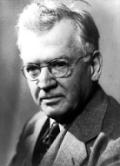A Quote by Rob Portman
What I support is a whole different approach with regard to drug use, and that is spending less money on the prosecution and incarceration side and more money on prevention and education, which I know works.
Related Quotes
To walk in money through the night crowd, protected by money, lulled by money, dulled by money, the crowd itself a money, the breath money, no least single object anywhere that is not money. Money, money everywhere and still not enough! And then no money, or a little money, or less money, or more money but money always money. and if you have money, or you don't have money, it is the money that counts, and money makes money, but what makes money make money?
Money is one form of power. But what is more powerful is financial education. Money comes and goes, but if you have the education about how money works, you gain power over it and can begin building wealth. The reason positive thinking alone does not work is because most people went to school and never learned how money works, so they spend their lives working for money.
We are in tough economic times right now, and the first thing we have to do is look at how we're spending the dollars that we have, and at what kind of return on investment we're getting. Because I think it will show that spending more money without fixing the fundamental flaws in the system won't produce anything different in terms of results. In DC, we were spending a whole lot of money on things that had no positive impact on students' achievement levels.
Each of us spends money on things that we do not really need. You could take the money you're spending on those unnecessary things and give it to this organization the Against Malaria Foundation which would take the money you had given and use it to buy nets to protect children. And we know reliably that if we provide nets, they're used, and they reduce the number of children dying from malaria. Fortunately more and more people are understanding this idea, and the result is a growing movement effective altruism.
The legalization of drugs, a proliferation of a public health approach to drug use and drug addition, a compassionate mental health system. And can we just say gender equality and the end of mass incarceration and the final shedding of the vestiges of a slave-based nation? Can we have that, too? Can I have it all?
In different countries the basis of resistance takes different forms, but it comes chiefly from the conservative groups. Hence it becomes increasingly difficult to go on spending in the presence of persisting deficits and rising debt. Some form of spending must be found that will command the support of the conservative groups. Political leaders, embarrassed by their subsidies to the poor, soon learned that one of the easiest ways to spend money is on military establishments and armaments, because it commands the support of the groups most opposed to spending.
The best way to encourage economic vitality and growth is to let people keep their own money.When you spend your own money, somebody's got to manufacture that which you're spending it on. You see, more money in the private sector circulating makes it more likely that our economy will grow. And, incredibly enough, some want to take away part of those tax cuts. They've been reading the wrong textbook. You don't raise somebody's taxes in the middle of a recession. You trust people with their own money. And, by the way, that money isn't the government's money; it's the people's money.
Don't be too much concerned about money, because that is the greatest distraction against happiness. And the irony of ironies is that people think they will be happy when they have money. Money has nothing to do with happiness. If you are happy and you have money, you can use it for happiness. If you are unhappy and you have money, you will use that money for more unhappiness. Because money is simply a neutral force.
Trickle-down economics - it didn't work. The whole idea was supply-side economics: give rich people a lot of money; they'll spend it, it'll go into the economy. Here's what we found out - rich people, really good at keeping all the money. That's how they got rich. If you want it in the economy, give it to the poor people. You know what they're really good at? Spending all their money.

































